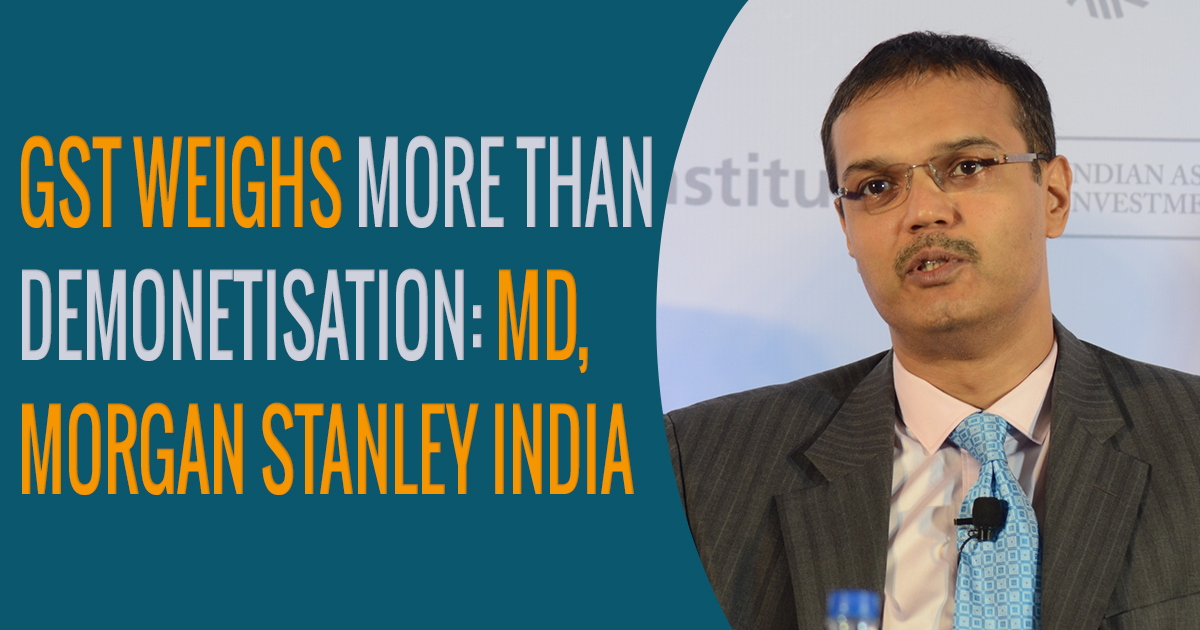
This time it has been said by a very important player in the global market over the demonetization step of the Indian government. It is Morgan Stanley India which is in the league of the prominent financial race of asset management, commodity signifier, and renowned investment major.
The biggest topic being discussed nowadays is Demonetization which has some fancy negotiations attached and people are mocking with no idea about its future positive upcoming. The Managing Director of Morgan Stanley India, Ridham Desai has been into this matter and shared some of his insights regarding the currency ban in his own words, “The impact is negative in the short run but not as large as is being made out by people. Yes, India is a cash-rich economy, the bulk of it is not black money but transactional cash. All of us transact in cash. That’s the anchoring of people in the country. They like to deal in cash. They don’t want electronic (banking). That is why we have only 40 million debit cards in a country of 1.25 billion.”
The managing director was happy to see this move of government and also assumed that this will, in turn, increase the digital India prospectus out of cash crunch. The gain by this will be an another milestone as the government is been forcing every citizen to be the part of the online market and have a share of his own. He said that “the government’s move has provided an impetus away from cash transactions and towards banking and electronic transactions and digital payments, resulting in a long-term benefit to India.”
“It’s not a net 13 percent of GDP that banks are receiving in cash. What we will have to see is in six months from now where does currency in circulation settle. It was 13 percent before demonetisation, does it settle at 11 percent, 9 percent or 13 percent. That difference is the net increase in banking penetration.” he added
Ridham Desai was seen saying that GST will be much more effective in curbing black money as the online structure obviously catch the tax evasion and leakage within the system. He was seen very positive in the implementation of GST and quoted an example also on this behalf. Ridham said, “the bigger trigger for the Indian economy and the fight against unaccounted wealth will be the implementation of the Goods and Services Tax (GST). The new indirect tax regime, once it comes into effect, will be 10 times more potent than demonetization in its ability to reduce unaccounted wealth.”
While for the example part he elaborated that, “Under GST, if you are a producer of a good and you don’t pay tax, so you are saving 25 percent tax (that’s the average rate of tax on an indirect basis). Suppose your margin is 10 percent which puts you outside the tax rate and so you save 3.5 percent in income tax. That’s a big difference. That’s the magnitude of the impact.”
He also talked about the funds and profitability and said that “It is logical and sensible for the U.S. to continue to support outsourcing to India because India reduces the cost for American corporations and drives profits higher. Stocks look cheap. They are pricing in single-digit earnings growth over the next 5 years. That looks like an attractive entry point. Tech stocks also correlate very positively with U.S. bond yields.”
Moreover, the managing personality was also seen confident, about the external balance sheet of the country as he noted that even if the American federal reserve hikes its interest rates, it will not affect the Indian rate of tax, which signifies the countries self-dependancy.
